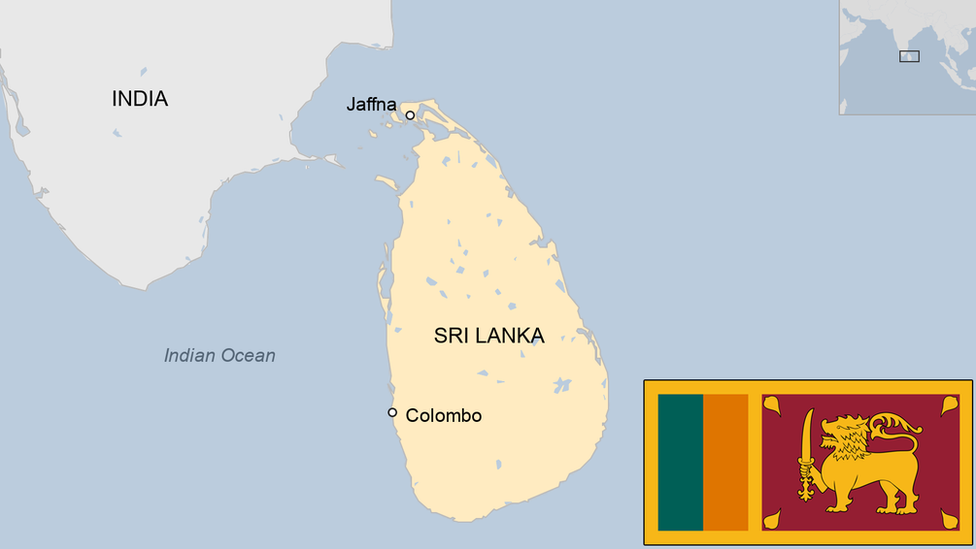Sri Lanka violence: State of emergency declared over attacks
- Published
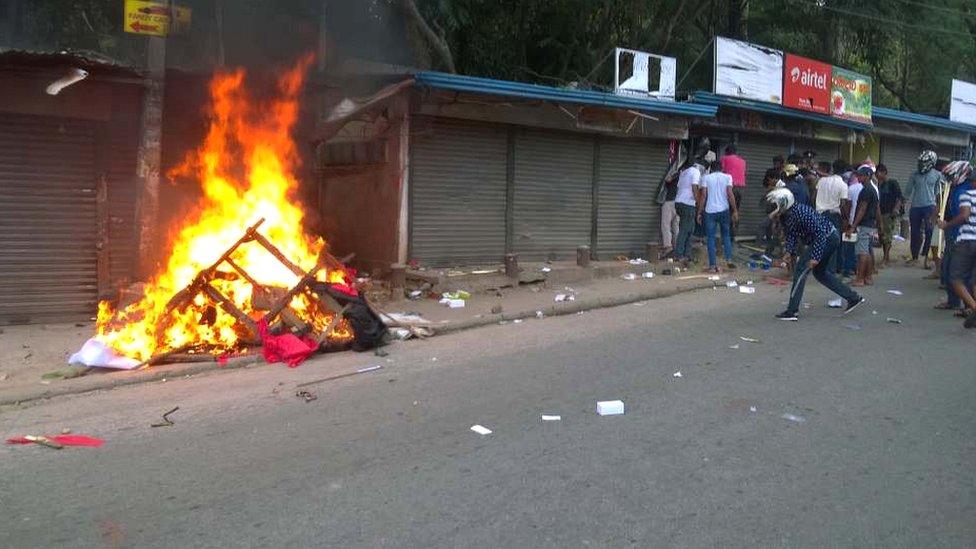
Kandy in the centre of the country has been the focus of the violence
Sri Lanka has declared a state of emergency after several attacks against mosques and Muslim-owned businesses.
A curfew is in place in the central district of Kandy, where crowds from the Buddhist Sinhala majority attacked a mosque, Muslim-owned shops and homes.
The authorities fear retaliation after a young Muslim man's body was found in a burnt-out building on Tuesday.
Tensions flared after the death of a Buddhist man who was said to have been beaten by some Muslims a week ago.
Last week, the eastern town of Ampara also saw anti-Muslim violence over a dispute in a shop.
A police curfew was declared in Kandy on Monday to prevent more sectarian clashes after the attacks carried out by a large Sinhala mob. It was briefly lifted on Tuesday, but soon re-imposed after the body of a 24-year-old Muslim man was found in the town of Digana.
"Four mosques, 37 houses, 46 shops and 35 vehicles damaged in Digana and Teldeniya area due to the mob attack," a local official told the BBC.
"Everything is destroyed. Muslims live in fear," he said.
Tension has been on the rise in Sri Lanka since 2012, said to have been fuelled by hardline Buddhists.
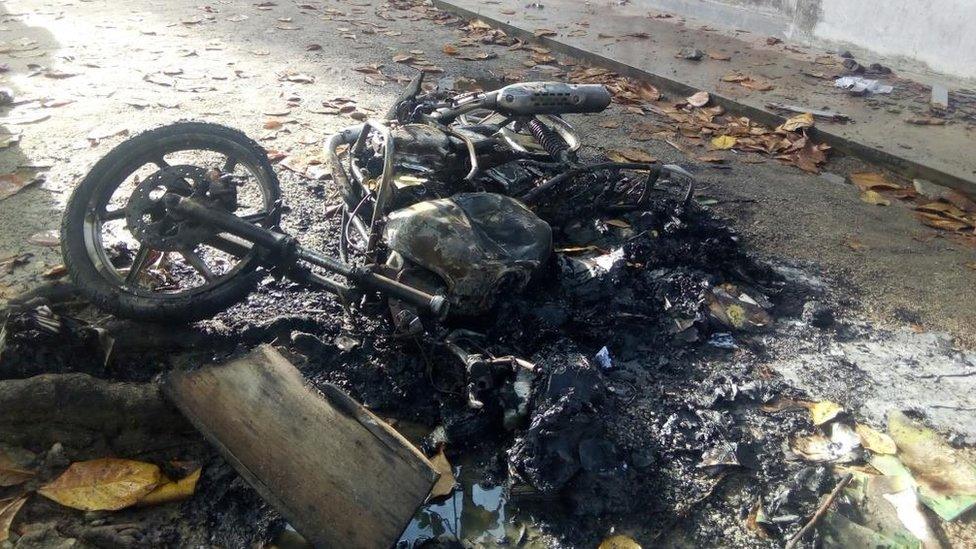
There was similar violence in the eastern town of Ampara last week
Under the state of emergency, the authorities are able to arrest and detain suspects for long periods, and deploy forces where needed.
They will also take action against "hate speech posts" on social media, a cabinet spokesman told the BBC.
It is the first time in seven years Sri Lanka has imposed the measure. The country was under a state of emergency for nearly three decades when the government fought Tamil rebels in the civil war that ended in 2009.
- Published18 November 2017
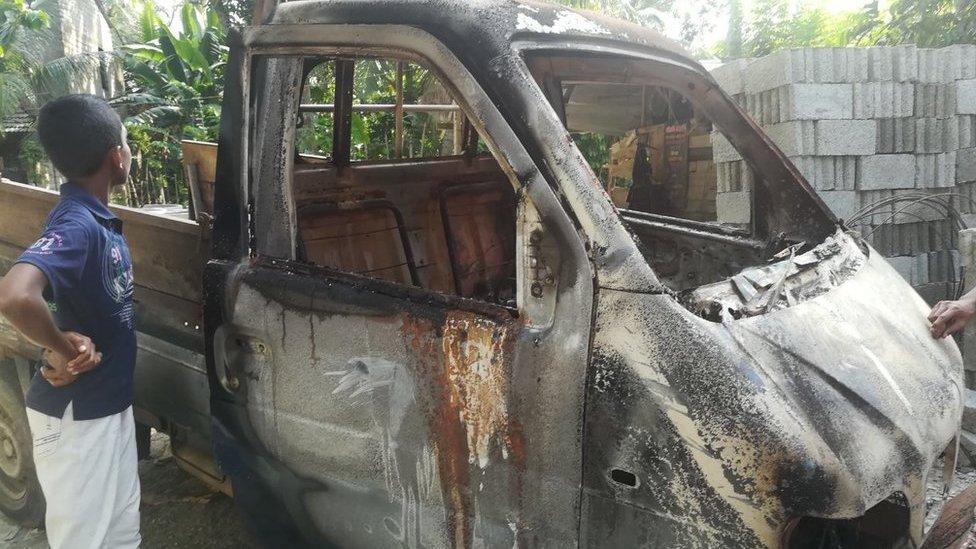
- Published18 November 2017
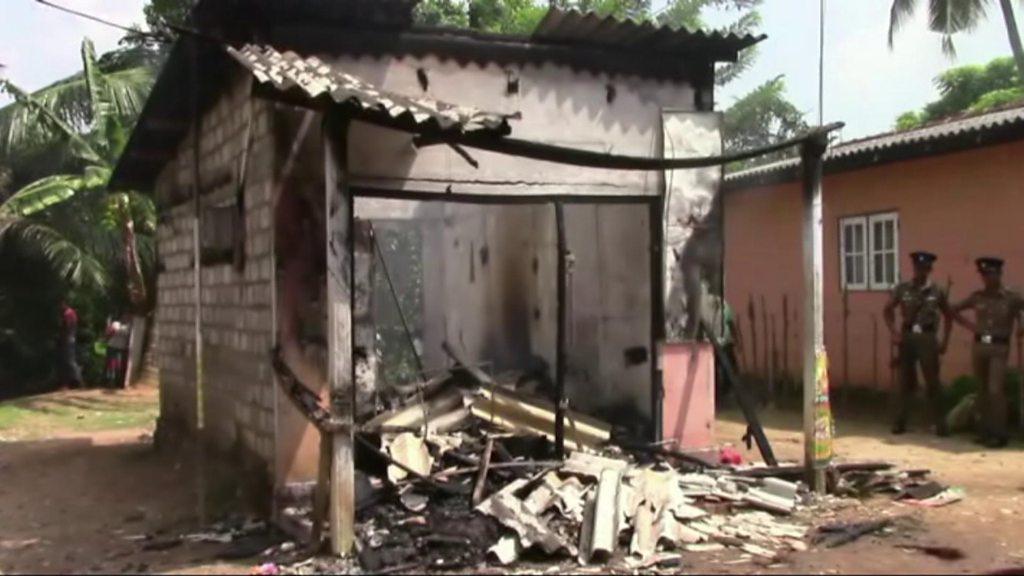
- Published17 June 2014
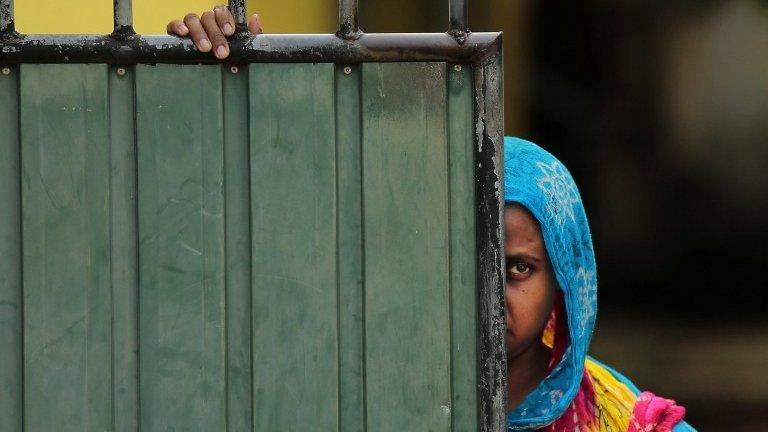
- Published25 June 2014

- Published4 October 2024
